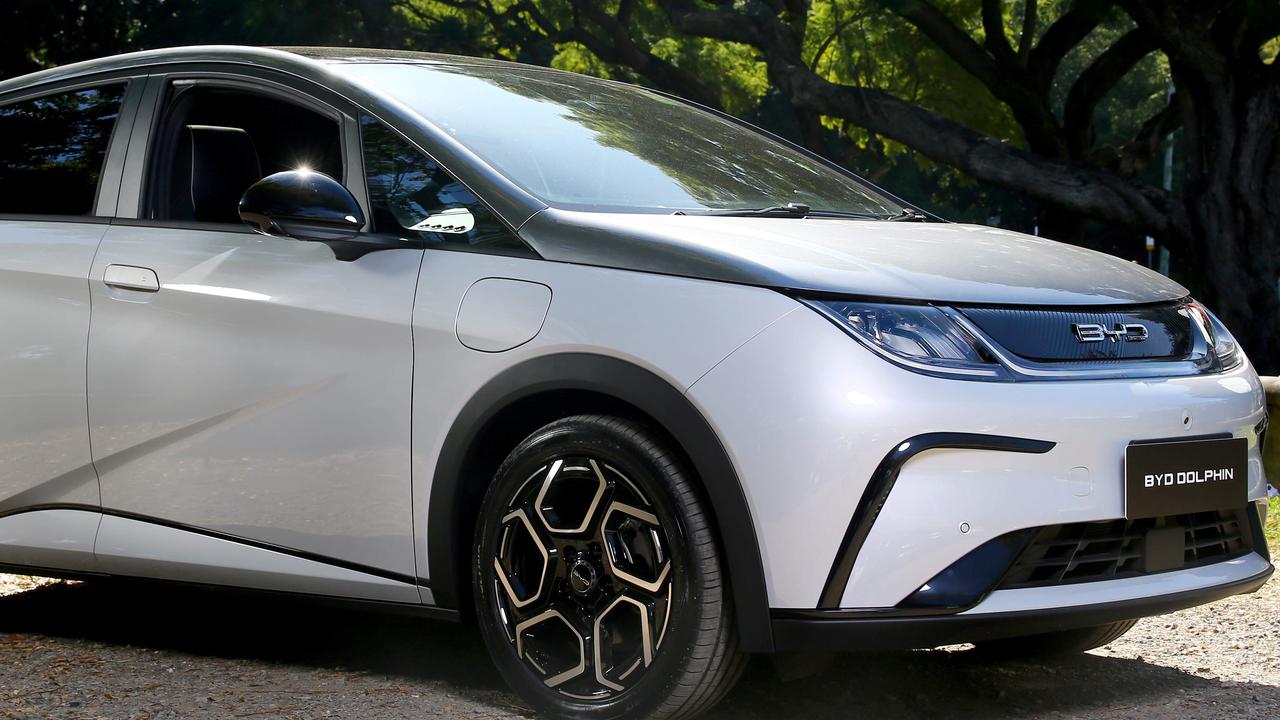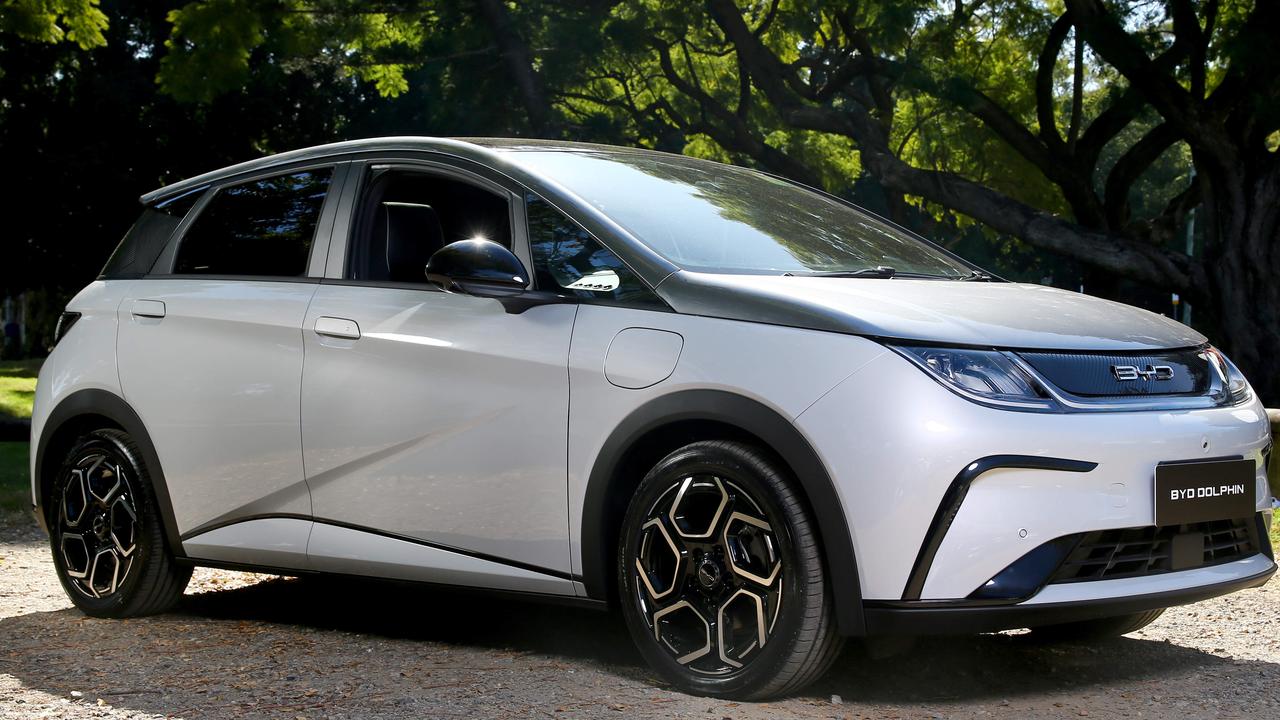One country has taken over the car market as electric vehicle sales rise
In a matter of years this vehicle has overtaken the Australian car market and it shows no sign of stopping.

ANALYSIS
China has taken over our car market. It is accelerating with all the force of a billion-strong industrial powerhouse and shows no sign of slowing down.
First China pipped Germany and I was impressed. But now it has pipped Korea and I’m blown away.
As the next chart shows, for the past few months, China has sold more cars into Australia than Korea, propelling it into third place on the sales ranking.
The car market slumped over Covid and when it came back to life, boom, China took over. Just look at that red line soar upwards What took Japan and Korea years to achieve – worming their way into our hearts by making high quality, well-priced automobiles, China has done it in no time at all.
Part of the trick is not making more than just their own brands. Yes, Chery and Great Wall Motors are made in China, and that’s obvious. MG is made in China, and most people know by now that the formerly British brand is now Chinese.
But there are proud European and American brands building cars in China too, and shipping them to Australia. Volvo is one. Tesla is another. China is not picky. It will make cars. Any cars.
That’s how it is rising up the ranks so fast. The next chart shows the ranking of different countries. Japan is the outright leader. It has sold the most cars into Australia every month except one over the last 13 years. Thailand has been steady in second place. (They make a lot of Fords including the popular Ford Ranger.) But third place has been a contest. Australia had it briefly, Korea then had it for years. But now China has clambered up and knocked Korea off its perch.
Korea is now off the podium. All those years Kia sponsored the tennis and Australia is still apparently willing just to drop Korea like *that* and embrace China instead.
If the trend continues, China will overtake Thailand within months and then there will be only one country ahead of it, Japan. I for one would favour a Japanese car over a Chinese car for quality. But quality is not the only factor.
Electricity
Japanese car companies missed the boat on battery vehicles. Toyota did enormous work with hybrids. The Prius has been on the market for decades and they were a huge pioneer there. But Toyota doesn’t have a battery electric vehicle (EV). They tried to leapfrog that technology and go straight to Hydrogen-powered cars. But it’s not happening. Toyota have sold just a handful of hydrogen cars in Australia ever, and fair enough since there’s literally only one place you can refuel them (at the old Toyota factory in Altona in Melbourne’s west.)
Maybe one day history will prove the right, but what people want right now is battery fuelled cars, and Japan’s big brands don’t have any to sell.
Cheap and cheerful
If you want an EV your choices are basically to pay hundreds of thousands for a European model or buy something out of China. Tesla’s China-made EVs cost around $70,000. But you can get an MG or a BYD for $40,000 to $50,000. These are the cars that helping Australia embrace EVs, far more so than the Mercedes EQC ($135,000) or the BMW iX ($198,000)
I test drove the BYD recently and it was a delight. (I wanted it but ended up buying a second-hand petrol car because even if Chinese EVs are better value than other EVs, they are still not as good value as a second-hand Skoda.)

China is pumping out mass-market EVs in their millions, while other brands from other countries are fiddling about, building a few for demonstration purposes, or to look more green.
More Coverage
Australia is selling them absolutely insane amounts of lithium to China to make the batteries inside those EVs too. We export $1 billion to $3 billion a month worth of the category of products that includes lithium. That’s about 100 times more than 10 years ago. We are lucky to be one of the countries with the biggest lithium reserves in the world.
China has long been a big export market for our raw materials. We’re used to selling them things. But now we’re becoming more and more dependent on China for supplying our cars. If we ever go to war with them over Taiwan it could become pretty awkward – there may be a little gap where we just can’t get our hands on enough cars. But the more we rely on them for cars – and the more they rely on us for lithium – the less likely any sort of conflict becomes, hopefully at least.
Jason Murphy is an economist | @jasemurphy. He is the author of the book Incentivology.






